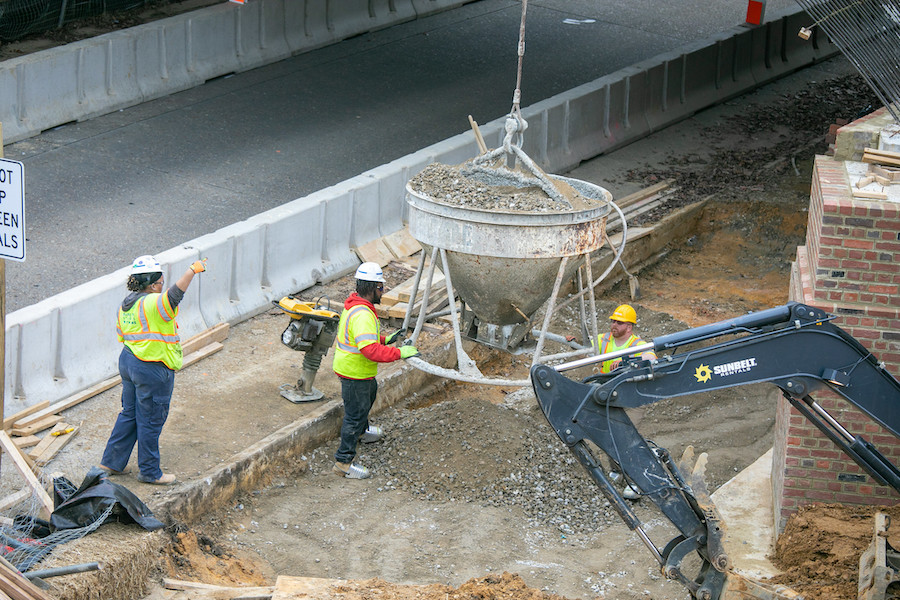When construction and transportation officials look at the calendar, their eyes are riveted on Sept. 30, when the current highway-transit authorization bill, the 2015 Fixing America's Surface Transportation, or FAST, Act is due to lapse.
Sept. 30 also marks the end of fiscal year 2020 and the date by which Congress must pass at least a temporary appropriations extension, to avert a government shutdown.
Industry groups are hoping Congress will resolve both issues with one bill: a stopgap overall spending package that also extends the FAST Act for a year.
A stopgap continuing resolution, or CR, has been under negotiation and is expected to be considered by the full House during the week of Sept. 21, a House Democratic aide told ENR via email on Sept. 14.
On the FAST Act front, political realities, and the shortage of time, had led industry groups to shift tactics, for now, from lobbying for their goal of a multi-year, well-funded bill. Instead they are pushing for a one-year extension.
Susan Howard, American Association of State Highway and Transportation Officials (AASHTO) program director for transportation finance, says AASHTO, industry and Capitol Hill “are coalescing around the desire to have a one-year extension of the FAST Act.”
For example, Senate Environment and Public Works Committee Chairman John Barrasso (R-Wyo.) prefers the five-year, $287-billion highway bill his panel cleared in July 2019, says committee spokesperson Sarah Durdaller. But she says if a long-term bill isn’t doable by Sept. 30, Barrasso wants an extension to run for at least a year to avoid disruptions in construction and planning.
In the House, Rep. Sam Graves (Mo.), the Transportation and Infrastructure Committee's top Republican, believes that "an extension of at least a year is in the best interests of the stakeholders," spokesman Justin Harclerode said via email.
He added that in Graves' view, "In lieu of a full reauthorization, that will provide the greatest amount of stability for states, construction seasons and job creation."
Stand-alone or CR
Durdaller says Barrasso would support a one-year extension “as a stand-alone bill or as part of a must-pass bill.”
Treasury Secretary Steven Mnuchin and House Speaker Nancy Pelosi (D-Calif.), have said they want a “clean” CR that extends spending at 2020 levels but generally excludes non-appropriations provisions .
A FAST Act provision might not seem to fit that definition of a “clean” bill. But the House aide told ENR that extensions of expiring authorizations are one of several items that will be discussed in the negotiations. The Office of Management and Budget had sent Congress a list of more than 60 such expiring authorizations, including the FAST Act.
Mnuchin also said the CR is expected to extend overall federal appropriations only into December. But infrastructure advocates are hopeful that negotiators will agree to extend the FAST Act for a full year.
Industry groups' big 'ask'
Construction and transportation groups also are seeking more than a short-term extension. In a Sept. 9 letter to congressional leaders and rank-and-file members, AASHTO, the American Road & Transportation Builders Association (ARTBA), the Associated General Contractors of America and 85 other construction, engineering, transportation, labor union and other organizations requested that the one-year bill have a funding hike over the FAST Act’s 2020 levels.
The law's 2020 totals are about $46.4 billion for highways and $12.6 billion for transit, according to figures from ARTBA.
In addition, the groups are asking Congress to provide enough new revenue to keep the Highway Trust Fund solvent through the length of the one-year extension.
It isn't clear how much revenue that would require, says Brian Turmail, an AGC spokesman. He said via email, "There's a sizable difference between the estimates of the Congressional Budget Office and the U.S. Dept. of Transportation" regarding that number.
The 88 groups also want Congress to add $37 billion more for state DOTs and $32 billion for transit agencies. Those funds would help offset gas-tax and ridership revenue lost due to the COVID-19 pandemic.
Pelosi told reporters on Sept. 10 that the CR won’t include any COVID relief-related provisions. That may make the industry groups $69-billion "ask" for state DOTs and transit a tough sell for inclusion in the CR.
The House already included $15 billion for state DOTs and $15.25 billion for transit agencies in the House's last big coronavirus-relief proposal, the HEROES Act. The chamber passed the bill in May but Senate Republicans slammed the measure and it has stalled.
Story changed on 9/15/2020 to correct description of industry groups' request for the Highway Trust Fund.



Post a comment to this article
Report Abusive Comment